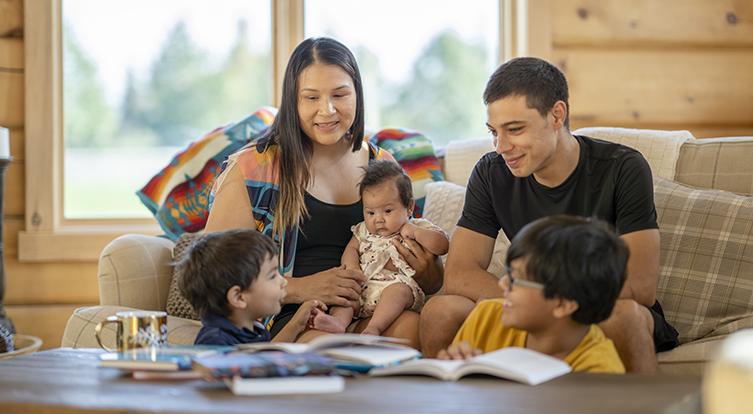Traumatic Brain Injury Resource Bundle for American Indians

Traumatic Brain Injury (TBI) is a disruption in the normal function of the brain that can result from a bump, blow, or jolt to the head or a penetrating head injury. Around 176 Americans die from a TBI-related injury each day. Indigenous people throughout North America are at greater risk for TBI and poor TBI-related outcomes based on disparities in health, connections to poverty, violence, and systemic racism. TBI has long been a concern for American Indians and there continues to be numerous barriers to receiving culturally appropriate, timely, and local short- and long-term treatment and services.
The TBI Resource Bundle for American Indians
In collaboration with American Indians partners, AIR researchers have developed a Traumatic Brain Injury Bundle to support American Indians with TBI, their families, and communities. The TBI Bundle contains free, research-based, and culturally tailored resources to help improve the rehabilitation outcomes of American Indians with TBI. Please check back periodically as we continue to update the Bundle with new resources.
Customizing TBI Bundle Resources
If your organization (e.g., Indian health organizations, hospitals, tribals, organization supporting people with TBI) is interested in customizing the TBI Bundle Resources as free information resources, we can add your organization’s logo, contact information, and any endorsement language on the TBI Bundle resources. Please contact us for more information.
Infographics

Understanding TBI
This infographic describes what TBI is, the causes of TBI, and recovery and impact of TBI.
Concussion Recovery
This infographic describes the common causes and symptoms of concussion and the general course of recovery. Recipient of the 2023 Hermes Creative Awards Honorable Mention, honoring the messengers and creators of traditional and emerging media.
TBI and Alcohol Use
This infographic describes the effects of alcohol on the brain after TBI and ways to cut down or stop drinking.
Memory Loss and TBI
This infographic describes how TBI may affect memory and offers strategies to help manage memory loss.

Depression after TBI
This infographic provides information on the causes of depression after TBI and the treatment options available.
Balance Problems after TBI
This infographic describes the common causes of balance problems after TBI and ways you can improve your balance.
Vision Problems after TBI
This infographic describes the common vision problems caused by TBI and offers tips to manage vision problems.
Headaches after TBI
This infographic describes the common types of headaches after TBI and provides strategies to manage headaches.
Infocomics

Seizures after TBI
This infocomic provides information on seizures after TBI, including treatment options and what caregivers should do if you are having a seizure. Winner of the 2023 Bronze Web-based Digital Health Award.
Concussion Recovery
This infocomic provides information on concussions, including what a concussion is, symptoms, and what to expect during the recovery process.
Memory Problems After TBI
This infocomic provides information on memory problems after TBI and strategies to manage memory problems.
The project is funded by the National Institute on Disability, Independent Living, and Rehabilitation Research (NIDILRR), Administration for Community Living, U.S. Department of Health and Human Services (grant number 90DPKT0008).
